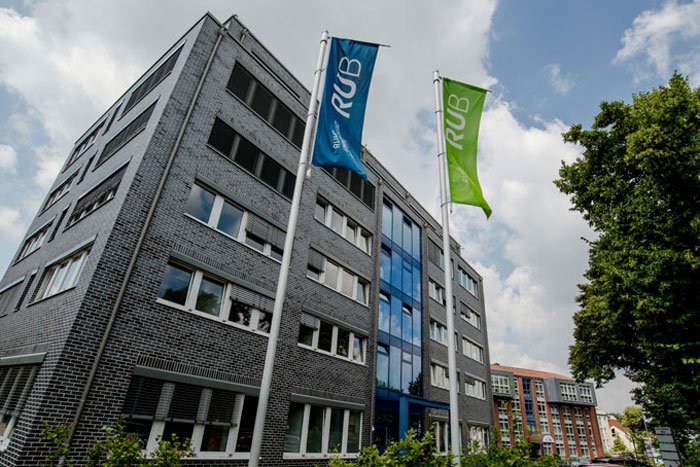CERES

The Center for Religious Studies (CERES) is one of Germany’s leading institutions in the field of the academic study of religion (German: Religionswissenschaft). Being part of the Ruhr Universität Bochum, a university of 43,000 students, junior and senior scholars alike can benefit from the vast expertise of a large number of disciplines. Both the independence of the center within the university structure as well as its close cooperations with other disciplines ensures an indepth and wide-ranging scholarly focus on religions.
CERES is part of a wide international network and connected to numerous European universities through the ERASMUS program as well as to several outstanding universities worldwide through cooperation initiatives (e. g. China, Israel, South Korea, USA). These networks also benefit students in their graduate studies.
The core areas of research and teaching are the religious traditions of Asia and Europe, which include all major religions that today are often termed as ‘world religions’, e.g. Hinduism, Judaism, Buddhism, Christianity, and Islam. But further religious traditions such as the polytheistic religions of Mesopotamia and the Mediterranean, Zorastrianism and Jainism are covered as well. Additionally, CERES researchers focus on sytematic and methodo-logical questions in regard to the academic study of religion. Another focus lies on religious diversity and religious encounters in past and present. Further research topics include religion and migration, religion and the media, and religion and the arts.
Research Institution
CERES harbours several research project funded by local sponsors, national research sponsors, the German government or the European Union.
The largest research project is the Käte Hamburger Kolleg Dynamics in the History of Religions between Asia and Europe. It comprises members from the Ruhr Universität Bochum and awards up to ten fellowships annually to ensure international input and focuses on the formation and expansion of religions, the mutual influence of religious traditions and their consolidation into the complex construct often called ‘world religions’ in Europe and Asia. The academic goal is to develop a comprehensive theory of transfer between religions, which addresses both the oscillating interactions of interreligious impulses and the dynamics of intrareligious conflicts. The Käte Hamburger Kolleg is funded by the German Federal Ministry of Education and Research.
Two projects have been awarded Consolidator Grants by the European Research Council. The research project JewsEast examines premodern Jewish-Christian relations and imaginings of one another beyond the confines of Europe and Byzantium since the rise of Islam. The team focuses on medieval and early modern Jewish-Christian encounters and relations in South India, Ethiopia, the Caucasus region, and the Middle East.
The project BuddhistRoad examines the spread of Buddhism in Central Asia. For the first time the multilayered relationships between the transregional Buddhist traditions (Chinese, Indian, Tibetan) and local Buddhist civilisations (Khotanese, Uyghur, Tangut, Kitan) are systematically explored.
The coexistence of people of different faiths challenges society. Young PhD researchers of the Graduate School RePliR ("Religious Plurality and its Regulation in the Region") examine these challenges with a special focus on the region of Westphalia, Germany. The graduate school is a joint-project with the Center for Religion and Modernity (CRM) of the University of Münster. The project RePliR receives its funding by the Ministry for Research of the state of North Rhine-Westphalia.

